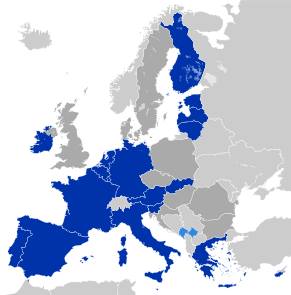Magdalena Styrnik
“Please, hurry up, I’m abroad”- how many times you had to say so while talking on your mobile phone during your trip, being aware of very high charges? Good news! The EU is doing its very best to get rid of roaming.
Saving customers from “bill shocks”
Roaming makes us pay for each of outgoing and incoming voice call, outgoing text messages and, what became very popular through last few years, online data download. That can be a reason for surprisingly high bill.
The highest roaming charges permitted have been steadily lowered since 2007. Maximum prices decreased in 2008 and 2009. Since then the EU’s law requires that customers travelling to another Member State have to receive a text message of charges that apply for roaming services. Also, the operators are obligated to send customers a warning when they reach 80% of their data-roaming bill limit and cut off the mobile internet connection once the limit has been reached.
It is worth to note that the EU achieved retail price reductions across calls, SMS and data over 80% since 2007. That retail could have been even more spectacular if first major reforms affected on the telecoms market in 2013.
Why is it so expensive?
While travelling to a foreign country with our mobile phone, we make our mobile phone company and one in the foreign country work together to keep us connected. Networks claim that roaming charges are so high, because they have to cover costs of using space on rival networks.
The largest operators warned in 2013 that abolishing roaming could cost the industry € 7 billion in cash flow before 2020. What is more, these charges are such an important source of revenue that removing it could force networks to cut their investments. Doing so would slow down the development of 4G technologies.
On the other hand, it is estimated that end of roaming charges would bring economic benefits to the 500 million citizens of the EU- that seems to be the reason for regulating roaming issue by the EU. A coalition of networks warns that the result of badly designed law will be an increase of costs of domestic calls, which can be major and long-lasting problem of abolishing roaming fees.
Roaming fees can remain until 2018
The European Parliament had voted to make roaming charges illegal by the end of 2015. Member states voted in favor of a delay, which means that fees will remain at least until 2018, Then they will look into the situation again.
However, there is a hope for the customers. One of the proposals member states and their telecom operators presented, was to make roaming much more cheaper. More probable and practical solution is to create a kind of a basic roaming limit for all calls, texts and data to use abroad. Any usage above this limit would be the subject of further charges. That idea is likely to be enforced in the middle of next year. Also, important issue is that the EU provides maximum permissible prices- operators are free to offer us cheaper ones!
It is said that the European telecom market is not ready for total roaming abolishment. With no doubt customers will not be against it. It seems like till 2018 customers can just chose the best offer to pay as less as possible and patiently wait for next decision of member states.





